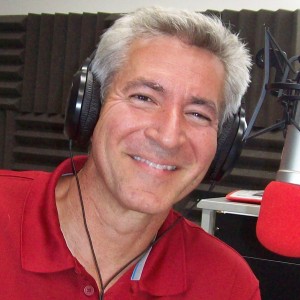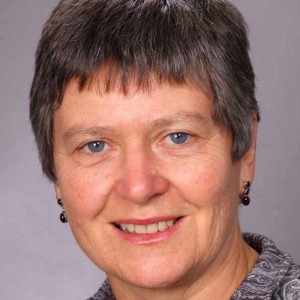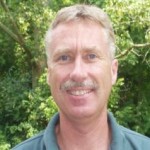Everybody needs to understand that science is not this thing that some other people do.
Guy P. Harrison is author of several books on sceptism including 50 Popular Beliefs that People Think Are True and the soon to be released Think: Why You Should Question Everything. With a positive and engaging brand of sceptical thinking Guy argues that weak scepticsm is the biggest threat facing the world.
Talking points
We need an open mind, but not doing to draw a conclusion until you’ve done the work
We need to humanise science, it’s not something that other people do.
It has to be OK to say “I don’t know”
Science is not a job, a profession, it is an outlook, it’s about embracing the real universe, the real world and the real humanity for what it is, and trying to learn as much as you can about it – and what is boring about that? That is exciting.
If you are a scientific thinker – a good sceptic – and you chose reality over fantasy and you open your mind up to whole world, all human kind, all the universe, you’ll never be bored a moment in your life.
There’s never a dull moment when you are a scientific thinker
If you are a scientific thinker, you are probably prone to being one of the crazier thinkers out there, because reality is so bizarre and there still are so many mysteries that we’re working on
My mind is open to anything, but I’m not going to ever accept claims without good evidence – it has to go through the meat grinder of scientific process, we have to see what comes out the other end. But thinking about these things…think away…dream.
You have to be comfortable not knowing
People love to point out when science is wrong and they go “Aha!?” and I go “what are you talking about? you’re pointing to the greatness of science”. Science is wrong and we go – “Aha we’ve found the blunder!” and they change the textbooks. That’s how it is supposed to work. That’s what’s great about science, we fix the mistakes.
I completely separate the irrational belief from the believer. I have complete respect for anyone regardless of what they may believe.
Believing crazy stuff is part of the human condition – we’re all a little goofy…the ways we process information (vision, memory) set us all up to fall for things that are not real or true, and if you remember that it humanise the believers and just keeps you in check – it allows the sceptic keep grounded. We’re all in this together, we are all fighting the same battle trying to be not nuts.
Creation stories are beautiful and there’s much wisdom to be found in them, but it breaks my heart that creation stories stand in the way of the real human story – the real story of humanity evolution – because that is the most beautiful, most unlikely, story of all. But 9/10 people couldn’t give you a good summary. Religions around the world are suppressing the real human story.
Teaching a child that the earth is 6000 years old is as nuts as teaching a child that the distance from the earth to the moon is about half a mile – that’s how nutty that is, that’s educational malpractice.
To teach biology without mentioning evolution is like teaching astronomy without mentioning planets or stars – it doesn’t make sense
You need to have that sceptical force-field around you…asking questions.
We need humanise science. Everybody needs to understand that science is not this thing that some other people do. Science is not this thing I learned in high school and then I can put away. Science is this core part of humanity. Science is who we are, we all have a stake in the scientific process, we all have a stake in scientific progress. If we turn off to science, if we leave it to others to worry about stuff, we are burying our heads in the sand and setting ourselves up for disaster.
We’re going to have this bizarre situation where we’ve got a planet where 99% of the people are scientifically illiterate but yet everything depends on science – that’s a recipe for disaster.
We have to stay connected to the science…this doesn’t mean memorising the periodic table…but should at least tap into the wonder of the world of science.
Part of being a good sceptic is being comfortable with “I don’t know”. Ignorance is fine. Admitting ignorance is honest. Don’t shy away from it. Let that ignorance drive you, motivate you to keep searching for answers. But don’t lie. We have this strange compulsion throughout humanity to fill in the blanks with made-up answers when we don’t know something. That’s a big mistake. It’s OK to leave it blank for now if we don’t have the answer.
Everything is tentative in science.
You’ve got to be a grown up – you can’t always have answers to everything. Never pretend to know what you don’t know.
(on Economic growth) Quality rather than size.
I’m realistic but optimistic.
We are in reach of a overcoming racism, poverty, and disease. We can overcome these things and really do better. It is possible. Doesn’t mean we will, but it is possible and just that possibility should fuel one with hope. It is something to work for and reach for – it’s there, we’ve never been closer. And to get there we need scientific thinking, we need a world filled with good sceptics so we that don’t waste time on pseudo-science and superstition. We can focus more on real social progress, real economic progress, real technological progress for all and devote more time for each other.
Tap into human creativity and passion for learning and discovery – we call it science but it’s really just being human . If you’re a teacher, don’t put sit your students them down in chairs rows and make them listen for an hour while you talk for an hour in front of a chalkboard, take them out and walk them along a coastline. Explore and discover.
Children learning are not robots, they’re not automobiles in for a tune up, these are human thinking machines that need to be stimulated – they need to wander off in different directions. We have to keep that component of excitement and discovery.
For me sceptism is a moral issue. I care about people, I care about the world, so I feel I have to speak up about this. I have to encourage people to think more clearly – there’s so much nonsense out there that’s harming people.
Guy was in Dunedin for the Science Teller Festival organised by the Centre for Science Communication at the University of Otago. We are grateful for the organisers of the Festival in their help in arranging this episode of Sustainable Lens.








